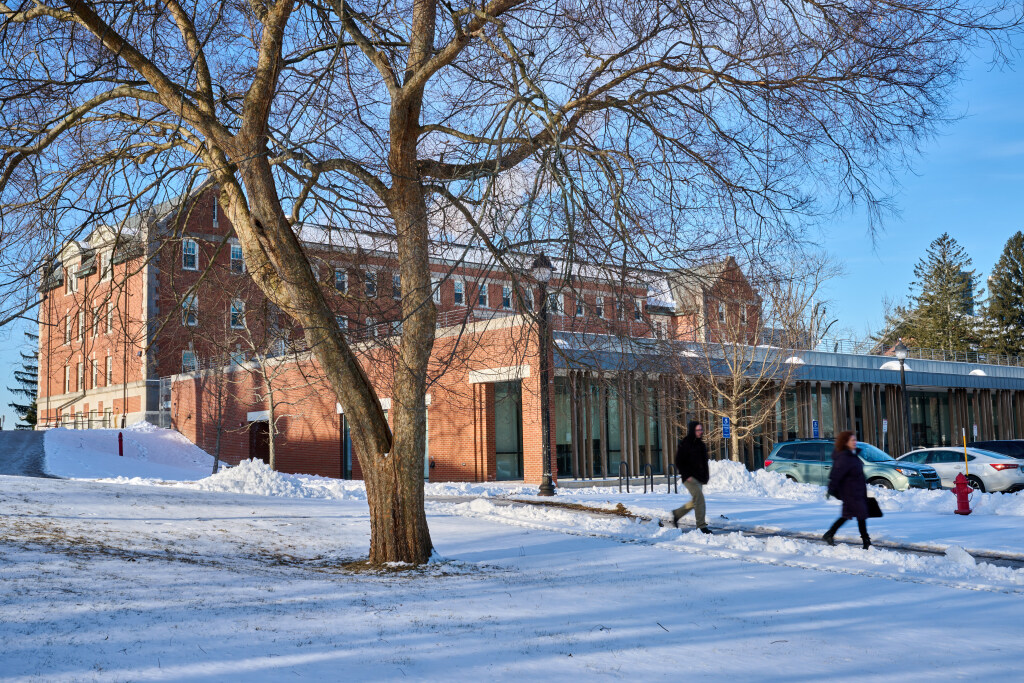The Covid-19 pandemic has disrupted almost every aspect of society, including legal education. We talked with Dean Timothy Fisher about the law school’s response to the crisis.
How did the law school transition to remote operations?
Our first challenge was to pivot from an in-person community to a virtual community in the space of a few days. This entailed hundreds of adjustments, which we were figuring out in real time as the public health advisories were changing. We closed the campus, with safety and health protocols for essential employees, and arrangements with the campus Public Safety and Facilities teams. We made sure we knew the whereabouts and security of all our people, including our DC and NYC Semester contingents, and faculty who were traveling.
We stood up IT systems to support remote staff operations and teaching, and trained the faculty in the Webex video conference platform. Then we figured out the academic changes necessary for every class to go online, with special arrangements for clinics and field placements.
We built a new set of library resource arrangements to provide continued remote research support to both students and faculty. We canceled commencement and all campus events for the balance of the school year, and started plans to postpone or conduct them virtually, or some combination. Our student-facing staff converted overnight to remote services, including counseling, registrar, careers and student finance.
How is it operating now?
We are now three weeks into the new arrangement, and most of our operations are going smoothly. The hardest part by far is the burden on our students. Most of them are away from family and other support systems and yet are doing their best to continue their learning. Some are parents; some are responsible for other family members; some have military or day job obligations. I am tremendously impressed that our students have been able to keep this learning community moving forward under such pressure.
Our staff are performing heroically, staying in touch with our students as much as possible, and making sure that we can continue all our services remotely. All indications are our faculty are doing a great job of switching to remote teaching, learning new ways to keep a class alive and engaged through Webex and other vehicles.
What is the plan for commencement?
It is a great loss to the JD and LLM Classes of 2020 that they will not have a traditional commencement ceremony this year. That day is a core part of the law school experience, bringing our students together with family and friends in a ceremonial farewell to each other and the campus. The experience of law school is not complete without it. We are working hard to fill the gap left by this loss, comparing notes with the other schools and colleges at UConn as well as other law schools around the country. We expect to have a plan within a couple of weeks and will update students when it is complete.
How is the law school helping the Class of 2020 deal with the changing bar exam and employment market?
Both the bar exam and the employment market are evolving in real time, with changes on a daily basis. The Connecticut, New York and Massachusetts bar exams are postponed, and many others will be as well. While some talk about holding them in September, that remains to be seen. The bar examination authorities are exploring arrangements to conduct secure exams on a remote basis, but have not settled on any as of yet. Absent that, there is a risk of further postponement of the exam. That creates a major problem for our students, whose ability to practice and earn a living will be delayed, and who may face the prospect of leaving jobs to study for a bar exam later.
So we, like the deans of the New York State law schools, are in dialogue with the Connecticut Bar Examining Committee and the Judicial Branch Rules Committee to explore provisional licensing arrangements to allow our graduates to start practicing sooner. These discussions are still at an early stage.
Meanwhile we are constantly monitoring reports from employers and our students about summer jobs and fall employment for graduates. Most law firms have not yet assessed their own business continuity plans and are unable to give us firm answers for fall employment. For 2020 graduates who have not secured jobs, we are working with our incubator, the Connecticut Community Law Center, for new graduates to start as solo practitioners in that program representing the working poor.
It is looking like most summer jobs will be remote rather than in-office positions, which reduces their value both to student and employer. That is a serious loss for the 1L and 2L classes, and for evening students able to seek summer positions. For those whose summer positions have been canceled, we are working on designing some remote research internship projects with UConn Foundation-supported stipends.
How has the coronavirus affected your personal plans?
I never expected to finish my seven years as dean like this. Like everyone else I had been looking forward to a series of student and alumni events leading up to commencement, with many chances to say thank you and goodbye to all the people who made my life so wonderful these years. Instead, I’ll be leaving the deanship as the Class of 2020 has left campus, without those closing personal connections. That’s hard. This is an intense and demanding job, made wonderful by the knowledge that we are helping to create a community of professional growth and intellectual exploration. It has not been easy to feel one’s success at a time when all the connections are through computers.
My family is also affected, with the household of one my sons ill from the virus, and a postponed wedding for our daughter. And our summer plans are in doubt, as they are for so many.
While I will be away most of this coming year on a very welcome sabbatical, I’ll return to the law school faculty in the fall of 2021. It will be good to be back, and rejoin this community I love so much.


